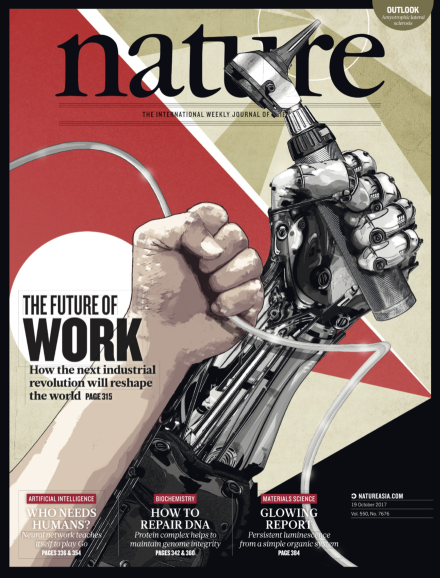Volume 550 Issue 7676, 19 October 2017
Editorial
World View
Seven Days
News
News Feature
Comment
Books & Arts
Correspondence
News & Views
Review Article
Article
Letter
Feature
Q&A
Futures
Outlook
-
Amyotrophic lateral sclerosis
Nature Outlook:
-
The hexanucleotide hex
Nature Outlook:
-
Non-Familial ALS: A tangled web
Nature Outlook:
-
Calculating disease
Nature Outlook:
-
Research round-up
Nature Outlook:
-
On the treatment trail for ALS
Nature Outlook:
-
Perspective: Untangling the ALS X-Files
Nature Outlook:
Nature Index
-
Metropolis of minds
Nature Index:
-
Scaling the heights
Nature Index:
-
Steeped in science
Nature Index:
-
On the biotech block
Nature Index:
-
Destination Daejeon
Collections:
-
Spain's science rivalry
Nature Index:
-
A league of their own
Nature Index:
-
Neighbours in knowledge
Nature Index:
-
A guide to the Nature Index
Nature Index:

